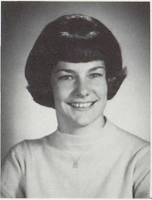Cover
Right away, the title grabs my attention. Mostly from my own genealogical research. My family has tried their best to hide the past. I am also a fan of crime mysteries, so this definitely has my interest. The picture of what appears to be an abandoned house makes you question, "What does this have to do with the story?" and "What is inside?"Plot
Forensic Genealogist, Morton Farrier, is hired by Peter Coldrick to find out the truth behind his family, specifically the identity of his grandparents. Right away, Morton learns this isn't going to be a typical job. It has now become known as the "Coldrick Case" and he must navigate his way through secrets, lies, and missing documents to find what he is seeking. He keeps running into people that will stop at nothing to hide the truth, even to the point of murder. Soon his safety is threatened along with his long-time girlfriend, Juliette. He is also involving other people from his life, worried he is also putting them at risk. He must decide if the truth is really worth all that he is going through. In the end, he learns more than he ever thought he would and finds the answer he did not expect. Not to mention during all this, he is dealing with his own personal history that he knows nothing about and the man he calls father. He will have to face some truths from his own past that he was not prepared to learn.Were Characters Relatable
I was able to relate to Morton in the sense that his past was shrouded in mystery. What he thought was truth was shattered by one revelation when he was younger, then again as he became an adult. Doing my own research, I've learned many truths about my family that has almost shattered my world. His reactions made perfect sense for someone who felt like they were in limbo and had no family to connect with.Kept my attention
The story kept me guessing what was going to happen next. Whom could he trust? If I would have had the time, I would have read the whole book in one sitting. It was always hard trying to find a stopping place when I needed to continue on with adulting for the day. So yes, it definitely kept my attention. You would definitely call this "A Page Turner".Easy To Understand and Follow
Nathan writes in a way that is definitely easy to understand and follow. A couple times I had to go back and clarify what I had read to understand what was going on, but that's only because sometimes I get ahead of myself. I am dying to know what happens next.What I Didn't Like
The only thing I had trouble with the most in the book was understanding locations. The story takes place in the UK, and I am from the United States. It feels like he writes with the understanding that the reader knows or is at least familiar with the towns he is referring to in the UK. If anything, it just shows I really need to expand my knowledge of the UK. Otherwise, I thoroughly enjoyed the book. It isn't hindering enough to keep me from enjoying the book and reading the rest of the series.Would I Recommend the Book/Series
I absolutely would recommend this book and the Morton Farrier genealogical crime mystery series. I'm actually going to be picking up the rest of the books myself to add to my personal collection. I'm hooked! If you are looking for an excellent crime mystery series with a bonus of dealing with genealogy, then this series is definitely for you!There you have it. As you can see, I would absolutely recommend reading this book and the series it goes with. If the rest of Nathan's books are this engaging and enjoyable, he is quickly going to become my new favorite author. But don't take my word for it. Pick up the book today and give your own review!
Get it from Amazon today!




























